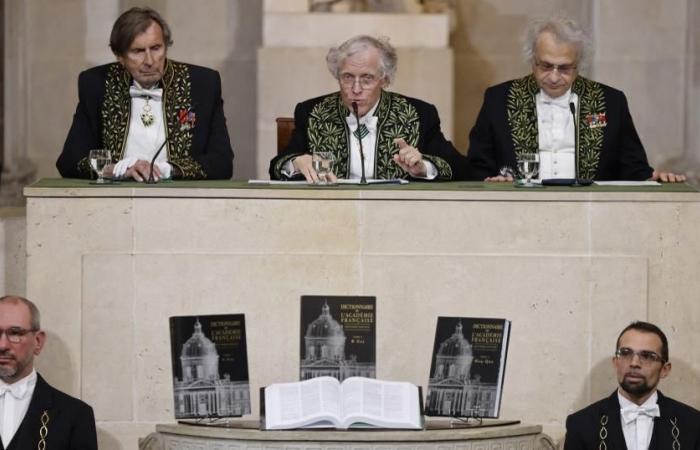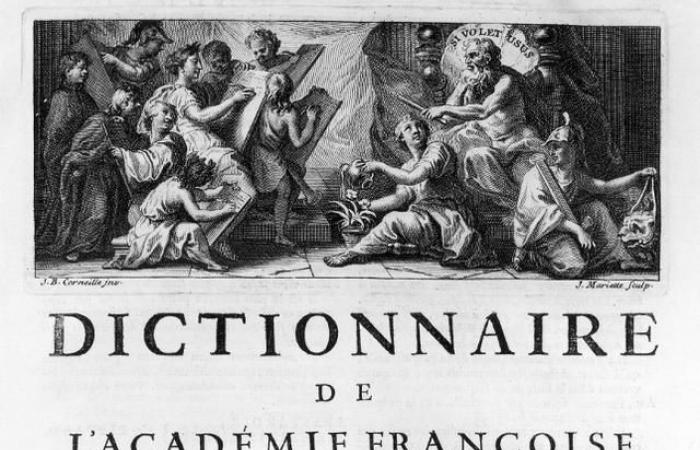The ninth edition of the Dictionary of the French Academy was solemnly handed over to President Emmanuel Macron on Thursday, devoting around forty years of work to this now controversial work.
Founded in 1634 to harmonize the language, the Academy’s mission is to write from A to Z this dictionary which is more or less a reference. The latest edition, the eighth, dates back to 1935, while the first was completed in 1694. This ninth edition has 59,000 words.
The President of the Republic arrived in the afternoon at the Academy, where he gave a speech to those called the “Immortals”, the Minister of Culture Rachida Dati, as well as invited people, noted an AFP journalist.
“You are the guardians of our language. And you must clarify it for its hundreds of millions of speakers all over the world,” he said. “Conservatives, revolutionaries, you are, allow me to say, both at the same time.”
“This authority is beneficial, which sets the benchmarks, the permanences, and at the same time the conditions for inventiveness,” said President Macron.
“The pace of development of your dictionary protects you from this temptation to give in to tics and fashions. This edition welcomes the word zadiste, which Paul Valéry’s contemporaries probably did not know,” he noted.
Obsolete but stylish?
The Dictionary arouses very varied comments in the scientific community, between those who consider the tool obsolete and those who find merit in it, alongside its rivals published by private companies such as Larousse and Robert.
“What the nine editions are available free of charge on the Internet is also a service made unique in the world for the population sharing French”, underlines the linguist Jean Pruvost, unsuccessful candidate for the Academy in 2021 and 2022, interviewed by L’Express.
“The current work of the Academy on this dictionary no longer makes sense, both economically and scientifically. Academicians do not have the technical and scientific skills,” according to the Collective of Dismayed Linguists, in Liberation.
On France Inter Thursday morning, a skirmish pitted a member of this collective, Julie Neveux, linguistics teacher at the Sorbonne, against an academic, Antoine Compagnon.
One deplored that, in the definition of “mail”there is no mention of email [la définition cite une petite masse cylindrique de bois, une promenade publique spacieuse et généralement plantée d’arbres, ainsi qu’un gros marteau, ndlr.] The second noted that there was a link to “Say, don’t say” to advise against this anglicism.
External content
This external content cannot be displayed because it may collect personal data. To view this content you must authorize the category Social networks.
Accept More info
Emmanuel Macron defended the work of academics, rarely specialists in French: “Those who define the language are not necessarily linguists but also writers. (…) It is important that it is writers who occupy the language. They have the taste for it, the use of it,” according to him.
The Academy today has six women and thirty-one men; three chairs have to be filled since the deaths of Jean-Denis Bredin (2021), René de Obaldia (2022) and Hélène Carrère d’Encausse (2023), who was the first woman at the head of the institution.
Stéphanie Jaquet and the ats







